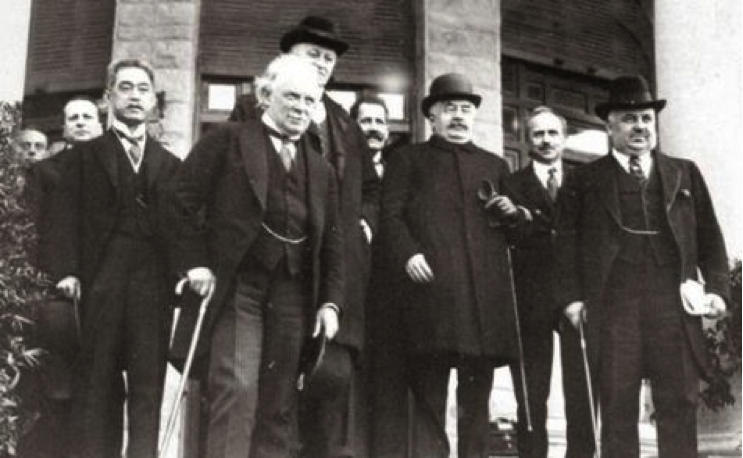Herbert Samuel Appointed First High Commissioner of Palestine During San Remo Conference

April 25, 1920
Representatives of the victorious Allies in World War I meet in San Remo, Italy, from April 19-26, 1920. The focus of the conference is the status of former Ottoman Empire territories in the Middle East. Participants include Zionist leaders Chaim Weizmann and Nahum Sokolow, as well as former British Home Secretary and Zionist supporter Herbert Samuel. Together, they advocate for a Jewish homeland in Palestine.
Although France objects, the Balfour Declaration, in which the British promised to establish a Jewish state in Palestine, is accepted as part of the San Remo resolution. The resolution passes April 25 and states:
The Mandatory will be responsible for putting into effect the declaration originally made on November 1917 [the Balfour Declaration], by the British Government, and adopted by the other Allied Powers, in favor of the establishment in Palestine of a national home for the Jewish people, it being clearly understood that nothing shall be done which may prejudice the civil and religious rights of existing non-Jewish communities in Palestine, or the rights and political status enjoyed by Jews in any other country.
The same day that the resolution is passed, British Prime Minister David Lloyd George asks Samuel to become the first high commissioner of Palestine. Samuel governs as Britain’s highest official in Palestine until 1925. He tries to govern in an even-handed manner, seeking but failing to bring Arab notables into the administrative process. Samuel develops a policy for Jewish immigration based on the country’s “economic absorptive capacity.” Zionists continually seek to increase the number of Jewish immigrants allowed into Palestine, and Arabs consistently seek to decrease this number.
Under Samuel’s leadership, Jews and Arabs each develop their own social, political and religious institutions. They fail to establish institutions where they govern together.